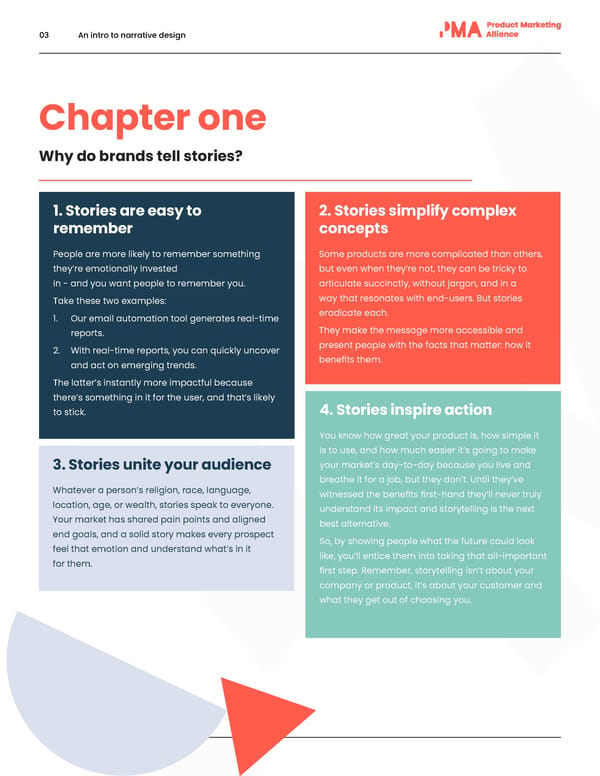03 An intro to narrative design Chapter one Why do brands tell stories? 1. Stories are easy to 2. Stories simplify complex remember concepts People are more likely to remember something Some products are more complicated than others, they’re emotionally invested but even when they’re not, they can be tricky to in - and you want people to remember you. articulate succinctly, without jargon, and in a Take these two examples: way that resonates with end-users. But stories 1. Our email automation tool generates real-time eradicate each. reports. They make the message more accessible and 2. With real-time reports, you can quickly uncover present people with the facts that matter: how it and act on emerging trends. bene昀椀ts them. The latter’s instantly more impactful because there’s something in it for the user, and that’s likely 4. Stories inspire action to stick. You know how great your product is, how simple it is to use, and how much easier it’s going to make 3. Stories unite your audience your market’s day-to-day because you live and Whatever a person’s religion, race, language, breathe it for a job, but they don’t. Until they’ve witnessed the bene昀椀ts 昀椀rst-hand they’ll never truly location, age, or wealth, stories speak to everyone. understand its impact and storytelling is the next Your market has shared pain points and aligned best alternative. end goals, and a solid story makes every prospect So, by showing people what the future could look feel that emotion and understand what’s in it like, you’ll entice them into taking that all-important for them. 昀椀rst step. Remember, storytelling isn’t about your company or product, it’s about your customer and what they get out of choosing you.
 A long story short Page 2 Page 4
A long story short Page 2 Page 4